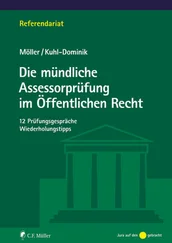Molly shook her head.
“He insists, and I think he really believes, that this was an accidental overdose. He took something like fifty Seconal. Obviously no accident. If he hadn’t vomited in the ambulance, I think we might have lost him.”
“Seconal?”
“It had been prescribed to your mother. Whether she was hoarding it or whether she’d stopped taking it and he was refilling the prescription himself, I don’t know. He won’t talk about any of it with me, or even admit it happened. You should ask him yourself. I don’t know what your relationship with him is like — maybe he’d talk to you.”
“He’s asleep now,” Molly said nervously.
“Next time, then?”
Kay was sitting in the car in the hospital parking lot with the radio on. Molly knocked on her window.
“Is he feeling better?” she asked distractedly. Her attention was directed to the radio program, a call-in show, hosted by an angry, intemperate psychiatrist.
“He looks okay,” Molly said. “Listen, why don’t you slide over. I’ll drive.” They returned home without speaking; the car was a bubble within which swirled the voice of the woman psychiatrist, berating her invisible patients, broadcasting her contempt for their problems, intimately and nationwide.
Kay did not accompany her on any more trips to the hospital in Albany, though Molly went every day; in fact, Kay, though she dressed up smartly at some point each morning, never left the house at all that Molly could see. Her mother betrayed no awareness that everything was not as it should have been, or as it always had been. But for once Molly wasn’t eager to pull at the mask of normality settled upon the visage of life in the house, because she no longer wanted to see what was behind it. So when Kay put on her makeup, laid a towel over the pillow on her tightly made bed, and lay down and napped for five or six hours, Molly just got in the car and drove to town to pick up some food, because someone had to do it.
The IGA was one of the few stores still unshuttered. It was only a matter of time before Molly saw someone she knew; three of them, in fact, her former girlfriends from Ulster High School. One of them was Annika. They passed her on the sidewalk as she loaded bags of food into the trunk of her mother’s car. It was plain from the looks on their faces that they had had no warning Molly was back in town. They looked right at her, as if she couldn’t see them too, as if her misfortunes had made her into some sort of figure on a TV screen whom you could stare at unobserved; they had all been something resembling good friends little more than a year before. Molly didn’t have the time or the mental energy to make sense of it. She had another stop to make — at the drugstore, a sensitive errand, at which she was relieved to go unrecognized — before returning to Bull’s Head. Being away from the house, leaving her mother there alone, filled her with a vague dread now, a dread which grew geometrically as she got closer to home.
When she walked through the door, her mother was awake, doing laundry, wearing pearls. “There was a phone message for you,” Kay said. “John someone. He didn’t leave a number. It’s on the machine if you want to hear it.” She didn’t say why she hadn’t picked up the phone when it rang.
“Thanks,” Molly said impassively. She went upstairs to her mother’s bedroom, played the message back, and let it erase itself.
For the next week, in fact, the phone never rang at all in the Howe household unless it was John calling. All their old friends, or those still left in town, were apparently scared off by the family’s new level of misfortune. Kay let the machine record every call, and so did Molly. The pitch of John’s voice rose incrementally with each unanswered message; he begged for some confirmation that Molly was all right, that she had arrived there at all. Molly played back and erased the messages on the machine in her parents’ bedroom when she was sure Kay was out of earshot. She could hear, in John’s voice, the strong suspicion that she was there, standing by the phone, that she was fine, and was thus not speaking to him by choice, a choice which was a complete mystery to him. But he would not accuse her out loud.
In the dayroom, her father made small talk as his fellow mental patients muttered grievously against the shadowed walls all around them. In fact, it was the normality of his own demeanor, compared to theirs, that made the dayroom a comfortable place for him. He wanted to know about Molly’s year in Berkeley, all about how her brother was doing; drawn into some vortex of dishonesty, Molly revealed to him only the most salutary aspects of her and Richard’s lives, such as her attendance of classes on art and literature. He admired her pluck without once broaching the matter of why she didn’t, or couldn’t, just enroll in the college in the first place. Most days she was engrossed in keeping him happy; but one morning, more out of curiosity than antagonism, she couldn’t resist asking him, “Dad, do you know why we’re here?”
He laughed, an embarrassed laugh, and then, holding together the lapels of the robe Molly had brought from his closet at home — the nurses had taken the belt away — he blushed.
“I feel so foolish,” he said.
Molly waited.
“I just didn’t read the label,” he said, holding up his hands. “How stupid is that? I was having trouble sleeping, so I got some of your mother’s medicine out of the bathroom cabinet. It was late, and I was too lazy to go downstairs and get my glasses, so I just took a couple. I got the dosage wrong.”
Molly started crying, silently. Roger didn’t seem to notice.
“And now all this,” he said. “So much trouble for everyone. You had to interrupt your studies and fly all the way across the country. I just feel so stupid. Can you ever forgive me?”
That evening Molly sat with her mother in the living room. The TV was on; they were watching Cheers . It was dull, thought Molly, but it served its purpose, which was to spare them from having to talk to one another. Then Kay said, “That John Wheelwright called again. I saved the message for you.”
“Thanks,” Molly said.
At the next commercial break, Kay said, “So who is he, anyway?”
“Sorry?”
“This John. He likes you?”
Molly ran her hand through her hair. “I guess so, yeah,” she said.
“Nice boy?”
“Yes,” Molly said.
There was a silence. “Well,” Kay said, “if you’re not interested in him, he’s obviously not getting the picture. Why not just call him back and tell him to leave you alone?”
The first time she had left Ulster, it was understood that, in however characteristically passive a fashion, her parents were throwing her out. Leaving a second time, Molly knew, was going to mean abandoning them, giving them up to the monstrosity of their marriage. Without a third person there, as a kind of emotional groundwire, the general air of psychopathology was going to thicken until at least one of them wound up dead. The transparently phony aspect of normality that her father had always maintained — and which, in his absence, her mother now seemed committed to — was now, even with one of them in the mental ward and the other at home watching Cheers , all that stood between them and a wholly genuine life of terror and hatred; Molly, for one, wished only that that false front might somehow still be preserved. She understood how smart her brother was not to come back here, never mind how elaborate and confining the mindset he needed to construct in order to permit himself to stay away. She also understood that she had never had any real idea, as a child in this house, of the true range of self-deception — the role of lying in survival.
Читать дальше












